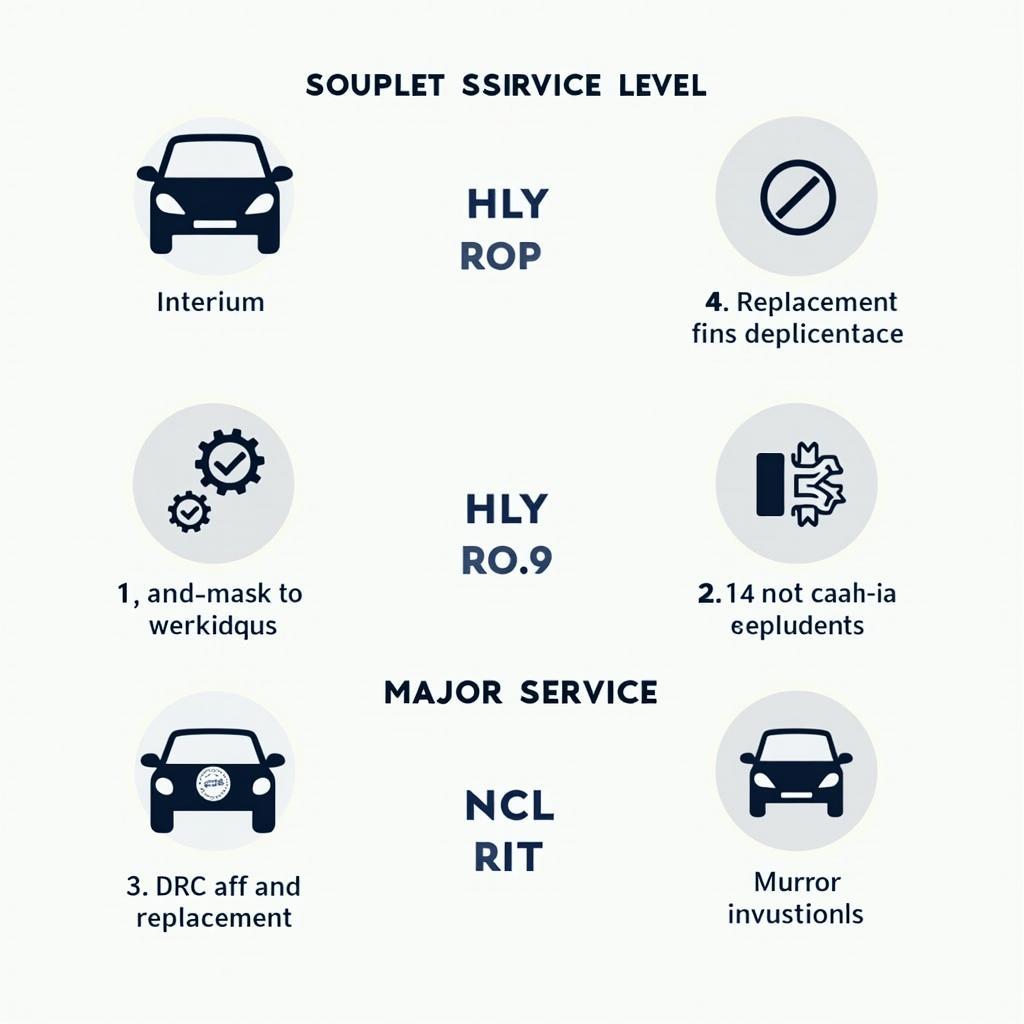A car service is essential for maintaining your vehicle’s performance, safety, and longevity. Understanding what “service” encompasses can save you money on costly repairs down the line and ensure a smoother, safer driving experience. This article will delve into the various aspects of car servicing, explaining its importance and what you can expect during a typical service.
Getting your car serviced regularly is akin to giving it a health check-up. It involves a series of checks and procedures performed by qualified technicians to ensure your vehicle is running optimally. These checks can range from simple visual inspections to more complex diagnostic tests, and the specific tasks performed will vary depending on the type of service and your car’s make and model. Want to know more about the right time for a service? Check out when should my car get serviced.
Understanding Different Service Levels
Car services are typically categorized into different levels, often referred to as interim, full, or major services. Each level includes a specific set of checks and maintenance tasks.
Interim Service
An interim service is designed for vehicles driven frequently or under demanding conditions. It focuses on essential checks and replacements, such as changing the oil and oil filter. This service helps maintain the engine’s health and prevent premature wear.
Full Service
A full service is more comprehensive than an interim service. In addition to the checks included in an interim service, it includes a more extensive inspection of various components, including brakes, suspension, and steering. A full service is typically recommended every 12,000 miles or annually. For more details on car service costs in the UK, see how much does a full car service cost uk.
Major Service
A major service is the most comprehensive type of car service. It covers all the checks and replacements included in a full service, plus additional tasks such as changing the air filter, fuel filter, and spark plugs. This service is typically recommended every 24,000 miles or every two years.
Why is Car Servicing Important?
Regular car servicing offers several benefits, including improved safety, enhanced performance, increased fuel efficiency, and a higher resale value. By addressing potential issues early on, you can avoid costly repairs down the line. Not sure if you should buy a car without a service record? See should i buy a car without service history.
Safety First
Regular servicing ensures that critical safety components, such as brakes and steering, are functioning correctly. This can help prevent accidents and ensure your safety on the road.
Performance Boost
A well-maintained car performs better. Regular servicing can help improve fuel economy, reduce emissions, and ensure a smoother, more responsive driving experience. Learn more about how to make cars service.
Value Retention
A full service history can significantly increase the resale value of your car. It demonstrates to potential buyers that the vehicle has been well-maintained and is likely to be reliable.
What Happens During a Car Service?
During a car service, a qualified technician will perform a series of checks and maintenance tasks based on the service level. These tasks typically include:
- Oil and filter change
- Fluid top-ups (brake fluid, coolant, power steering fluid)
- Brake inspection
- Tire pressure and condition check
- Suspension and steering check
- Exhaust system check
- Electrical system check
- Diagnostic tests (if necessary)
Wondering when your car needs servicing? Check out how do i know when my car needs servicing.
Conclusion
Understanding what “service” means on a car is crucial for every car owner. Regular servicing is an investment that pays off in the long run, ensuring your vehicle’s safety, performance, and longevity. By choosing the appropriate service level and adhering to the recommended service intervals, you can keep your car running smoothly and avoid costly repairs in the future.
FAQ
- How often should I service my car? Consult your owner’s manual for specific recommendations.
- What is the difference between an interim and a full service? A full service is more comprehensive and includes additional checks.
- How much does a car service cost? The cost varies depending on the service level and your car’s make and model.
- Can I service my car myself? While some basic maintenance tasks can be performed at home, it’s best to leave more complex procedures to qualified technicians.
- What happens if I don’t service my car regularly? Neglecting regular servicing can lead to costly repairs and compromise your safety.
- How do I choose a reputable car service center? Look for certifications, read online reviews, and ask for recommendations.
- What should I check after a car service? Ensure all fluids are topped up, and verify that all the listed tasks on the service report have been completed.
Need Assistance? Contact us via WhatsApp: +1(641)206-8880, Email: [email protected]. We have a 24/7 customer support team.


